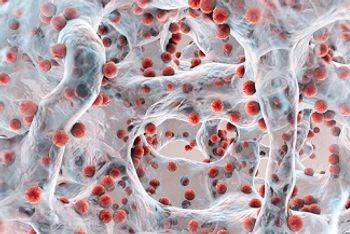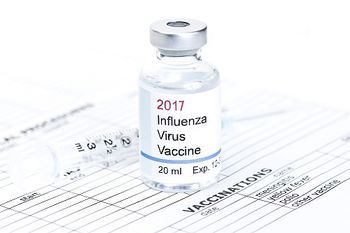
A new study suggests that village clinics are not properly dealing with the ongoing problem of tuberculosis in rural China.

A new study suggests that village clinics are not properly dealing with the ongoing problem of tuberculosis in rural China.

With 264 vaccines in the pipeline in the United States, the future for the prevention of diseases appears to be extremely bright.

Hospital employees are increasingly using hospital infection rates to highlight gaps in training, education, and staffing.

Stay up-to-date on the latest infectious disease news by checking out our top 5 articles of the week.

Studies have proven that undetectable levels of HIV mean an individual cannot transmit the virus to someone else. Now the word needs to spread.

Researchers from the Ohio State University Wexner Medical Center have found that special electric bandages can disrupt biofilm infection and enable healing in already infected burn wounds.

The vaccine is the only 2-dose regimen for the prevention of infection by all known subtypes of hepatitis b in adults 18 and older.

In a new study, a pair of Australian virologists argue that we cannot predict virus outbreaks, looking at the “fault lines” of interaction between humans and animals may help us be better prepared.

PREVYMIS, or letermovir, has just received approval from the US Food and Drug Administration (FDA) to be administered orally via once-daily tablets and through injection for intravenous use.

In a story that could be straight out of the 1980s, health officials in the state of West Virginia have stated they are dealing with a major outbreak of HIV infections in the southern part of the state.

Two new studies highlight just why the flu vaccine isn’t working and one new approach that may give way to a universal vaccine.

Remembering the links between infectious diseases such as influenza and HIV, among others, and mental health can improve patient outcomes.

A new study gleans troubling findings—four in 10 health care providers choose to go to work despite experiencing symptoms of infectious disease.

Contagion® will be providing exclusive coverage on the conference. Keep your eyes peeled for session coverage and interviews with some of the key presenters.

Recent data demonstrated that small doses of raltegravir could lead patients developing malignancies; however, the observations had not yet been substantiated.

The US Food and Drug Administration (FDA) has cleared a complete blood cell count (CBC) test that, based on its categorization, can be run in more health care settings.

While a new FDA report shows antibiotic resistance remains low among many food-borne bacteria, some pathogens are increasingly showing multidrug resistance.

Can we track Clostridium difficile infections to see how patient movements result in exposures?

In case you missed them, we've compiled the top five infectious disease articles from this past week.

While rising temperatures and sea levels are often considered, changing climate patterns can have vast implications for epidemic risk as well.

The results of a new study show that prescribing 1 antibiotic to treat community-acquired pneumonia in children may be as effective as the usual 2-antibiotic treatment, in most cases.

Updated guidance from the CDC on Zika, candidemia infections in patients with C. difficile infections, and more topics made up our Top 5 articles for the month of October 2017.

Dolutegravir seemed to be a promising maintenance monotherapy for people living with HIV, but the development of resistance mutations in testing strikes it from the list.

A viral hemorrhagic fever is currently plaguing Uganda. We break down the current situation.

A new study has shown that women with schistosomiasis are at greater risk for HIV infection.

Researchers from The Scripps Research Institute have discovered why egg-based influenza vaccines offer a lower level of protection against H3N2 viruses.

What is pharma doing about the impending antibiotic resistance “apocalypse?”

Part 3 of our series looks at

Three antimicrobial susceptibility tests have been cleared by the FDA concurrently with the launch of a new antibiotic Baxdela, to help guide its use.

At this year’s annual CHEST meeting, Theravance Biopharma investigators report positive new data pertaining to VIBATIV gleaned from the TOUR study.